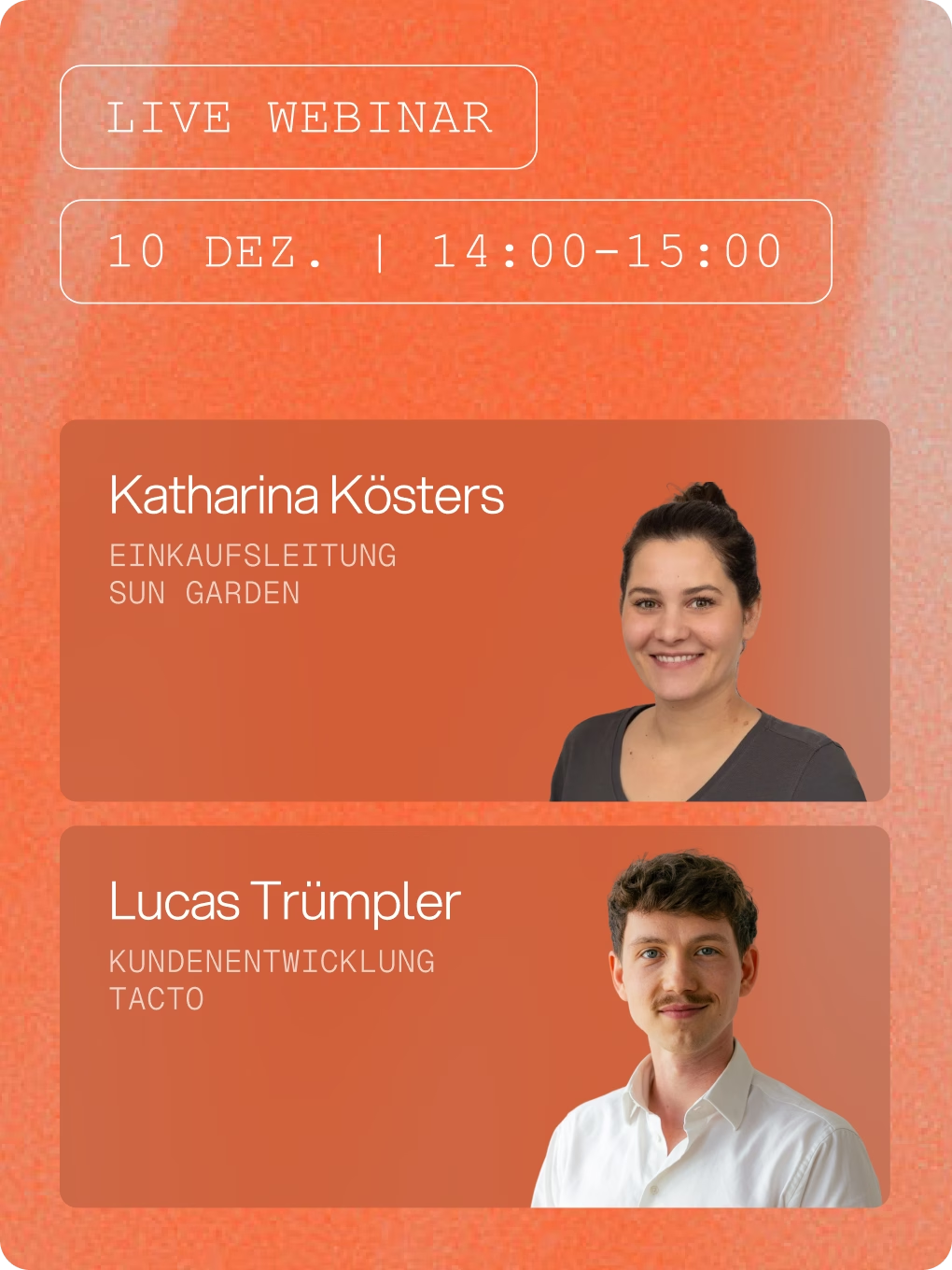Procurement Glossary
EUDR in Procurement: definition, requirements and compliance implementation
November 19, 2025
The EU regulation on deforestation-free products (EUDR) presents purchasing departments with new challenges in terms of supplier evaluation and traceability. EUDR in Procurement requires proof that certain raw materials do not contribute to deforestation. Find out below what the EUDR regulation means, what requirements apply and how you can successfully implement compliance processes.
Key Facts
- EUDR will apply to soy, palm oil, beef, coffee, cocoa, rubber and wood from December 2024
- Companies must provide evidence of geodata and deforestation-free supply chains
- Violations may result in fines of up to 4% of annual turnover
- Due diligence systems and risk analyses become mandatory
- Smaller companies receive 6 months longer transition period
Contents
What is EUDR in Procurement? Definition, content and relevance
The EU regulation on deforestation-free products is fundamentally transforming sustainable procurement strategies.
Key elements of the EUDR Regulation
The EUDR requires companies to prove that their products have not contributed to deforestation after December 31, 2020. This includes seven categories of raw materials and their derivatives:
- Soy and soy-based products
- Palm oil and products containing palm oil
- Beef and beef products
- Coffee and coffee products
- Cocoa and chocolate products
- Rubber and rubber products
- Wood and wood products
EUDR vs. other sustainability regulations
In contrast to the Supply Chain Due Diligence Act, the EUDR focuses exclusively on deforestation risks. While corporate sustainability due diligence covers broader ESG aspects, the EUDR requires precise geodata and production locations.
Importance of EUDR in Procurement
Procurement organizations must expand their due diligence processes and drastically increase supplier transparency. The regulation requires full traceability back to the production site and makes compliance in Procurement a strategic success factor.
Requirements and implementation of EUDR in Procurement
The practical implementation of the EUDR requires systematic adjustments to existing procurement processes and new control mechanisms.
Establish a due diligence system
Companies must develop a robust due diligence system that includes information gathering, risk assessment and risk mitigation. The system must be reviewed annually and updated in the event of significant changes.
- Collection of geodata from all production sites
- Proof of freedom from deforestation since 31.12.2020
- Documentation of the legality of production
- Continuous monitoring of the supply chain
Adapt supplier management
EUDR compliance requires intensive cooperation with suppliers and new contractual clauses. Supplier codes of conduct must be expanded to include EUDR-specific requirements.
Implement digital traceability
Modern IT systems enable the necessary traceability of materials and automated compliance monitoring. Blockchain technologies and satellite-based monitoring support geodata collection.

Tacto Intelligence
Combines deep procurement knowledge with the most powerful AI agents for strong Procurement.
Compliance key figures and quotas
Effective EUDR compliance requires systematic measurement and monitoring of relevant performance indicators.
Traceability KPIs
The completeness of supply chain transparency can be measured using specific key figures:
- Proportion of suppliers with complete geodata (%)
- Degree of traceability to the production site (%)
- Average time for compliance verification (days)
- Number of non-compliant deliveries per quarter
Risk and audit indicators
Regular risk assessments and audit cycles ensure continuous compliance. Key metrics include the frequency of supplier audits, identified risk cases and corrective action implementation times.
Cost-benefit indicators
EUDR compliance causes additional costs that must be weighed against risk reduction. CO2 prices and sustainability premiums are increasingly influencing the profitability analysis.
Compliance risks and controls for EUDR
EUDR non-compliance entails considerable financial and reputational risks for companies.
Sanction risks and fines
EUDR violations can result in fines of up to 4% of annual turnover and product seizures. Temporary market exclusions can also be imposed. Enforcement is carried out by national authorities with different interpretations.
Supply chain risks
Complex supply chains make complete traceability difficult and increase compliance risks. These are particularly critical:
- Non-transparent intermediaries and brokers
- Lack of geodata for smallholders
- Insufficient documentation in developing countries
- Mixed products from different sources
Operational risks
Incomplete due diligence processes can lead to supply disruptions. Whistleblower systems help to identify risks at an early stage, while regular audits uncover compliance gaps.
Practical example
A German chocolate manufacturer is implementing EUDR compliance for its cocoa sourcing from West Africa. The company is developing a digital tracking system that records GPS coordinates of all cocoa plantations and uses satellite images to monitor deforestation. Partnerships with local cooperatives and blockchain technology ensure full traceability.
- Training 500 smallholders in sustainable farming methods
- Installation of GPS devices on 200 plantations
- Quarterly satellite image analysis for deforestation control
- Digital certificates for every cocoa delivery
Current developments and interpretation of EUDR
EUDR implementation is developing dynamically with new design aids and technological solutions.
Regulatory developments
The European Commission continuously publishes guidelines on practical implementation. Particular attention is paid to the definition of "deforestation" and the treatment of mixed products. The Corporate Sustainability Reporting Directive also strengthens reporting obligations.
Technological innovations
AI-based satellite data analysis revolutionizes deforestation monitoring and enables real-time monitoring of production areas. Machine learning supports risk assessment and automates compliance checks in complex supply chains.
Industry-specific approaches
Various industries are developing sector-specific compliance standards and certification systems. FSC-PEFC certificates are gaining in importance as a verification tool, while new blockchain-based tracking systems are emerging.
Conclusion
EUDR in Procurement presents companies with complex challenges, but also offers opportunities for more sustainable supply chains. Successful compliance requires systematic due diligence processes, digital traceability and close supplier cooperation. Early implementation and continuous monitoring minimize risks and create competitive advantages in an increasingly regulated business world.
FAQ
What does EUDR actually mean for purchasing departments?
EUDR obliges buyers to fully document the origin of certain raw materials and to prove that they are deforestation-free. This requires new due diligence processes, extended supplier assessments and digital traceability systems throughout the entire supply chain.
Which products are affected by the EUDR?
The regulation covers seven categories of raw materials: Soy, palm oil, beef, coffee, cocoa, rubber and wood, as well as all products made from them. Processed products such as chocolate, furniture or car tires are also covered by the regulation if they contain these raw materials.
How can companies implement EUDR compliance cost-effectively?
Successful implementation requires gradual digitalization of the supply chain, strategic supplier partnerships and the use of existing certification systems. Industry initiatives and shared platforms significantly reduce individual implementation costs.
What are the penalties for EUDR violations?
National authorities can impose fines of up to 4% of annual turnover, confiscate non-compliant products and impose temporary market exclusions. In addition, reputational damage and potential supply chain disruptions arise in the event of compliance violations.



.avif)

.png)
.png)


.png)




